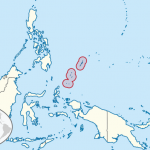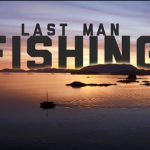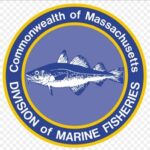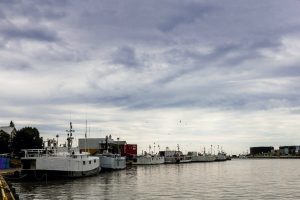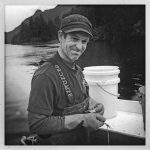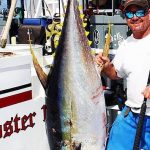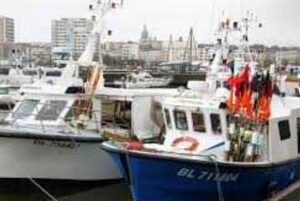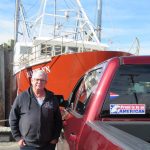Tag Archives: catch share programs
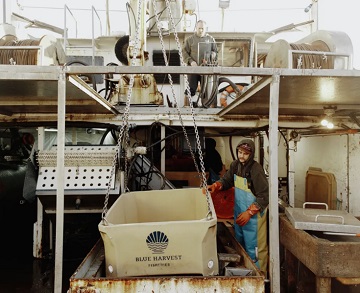
It’s time to end the era of billion-dollar ‘sealords’ and heed the fishermen
The recent New Bedford Light/ProPublica investigative report, revealing how a billionaire Dutch family currently operates as the largest New England fish-quota owner, confirms what fishermen have been warning lawmakers for decades: that replacing independent fishermen with outside investment firms will undermine economic, social and environmental goals. However, these warnings extend well beyond New England. The report outlines how Bregal Equity, a multi-billion dollar private equity firm based in the European Union, maximizes fishing profits from their New England quota holdings by slashing costs and reducing income to captains and crew. Catch share programs have been implemented in Alaska, the West Coast, and the Gulf of Mexico, as well as internationally, where the next generation of independent fishermen are being systematically replaced by non-fishing, outside investors who follow in the wake of Bregal. >click to read< By Captain Ryan Bradley 15:57
Share this post
SAFMC Snapper-Grouper Vision Project hearings in SC and GA next week – Be heard on this very important plan.
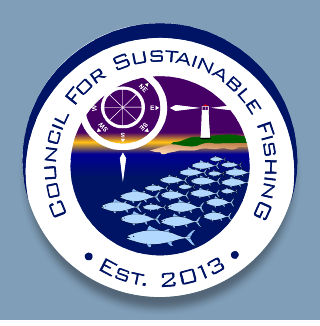 A reminder of the important public hearings next week in South Carolina and Georgia on the South Atlantic Fishery Management Council’s snapper-grouper Vision Project. This long-term snapper-grouper management plan, which was promised by the SAFMC to be “stakeholder-driven,” contains measures that are overwhelmingly opposed by stakeholders: catch share programs for both commercial and for-hire fishermen that will privatize the fishery, expensive and burdensome vessel electronic monitoring for all fishermen, and more closed fishing areas. South Carolina, and Georgia schedules, locations, webinar info click here 16:24
A reminder of the important public hearings next week in South Carolina and Georgia on the South Atlantic Fishery Management Council’s snapper-grouper Vision Project. This long-term snapper-grouper management plan, which was promised by the SAFMC to be “stakeholder-driven,” contains measures that are overwhelmingly opposed by stakeholders: catch share programs for both commercial and for-hire fishermen that will privatize the fishery, expensive and burdensome vessel electronic monitoring for all fishermen, and more closed fishing areas. South Carolina, and Georgia schedules, locations, webinar info click here 16:24
Share this post
A five-year failure – Jes Hathaway, Editor in Chief, National Fisherman
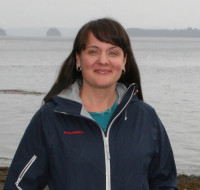 Catch share programs have been heralded in all corners of the country, first by NGOs and second by some of the fleet owners, fishermen and processors to whom they have brought success.The counterbalance to those claims of success are of course the thousands of voices of fishermen and many more thousands of supporting small businesses put out of work as a result of catch share programs. But even worse, at least one catch share program was implemented with such haste,,, Read the rest here 11:27
Catch share programs have been heralded in all corners of the country, first by NGOs and second by some of the fleet owners, fishermen and processors to whom they have brought success.The counterbalance to those claims of success are of course the thousands of voices of fishermen and many more thousands of supporting small businesses put out of work as a result of catch share programs. But even worse, at least one catch share program was implemented with such haste,,, Read the rest here 11:27
Share this post
Venker: Catch-share fishery programs don’t pass the smell test
 Catch-share programs have been promoted as a panacea to many fishery management challenges, but close scrutiny of these programs shows they create far more problems than they solve. Putting ownership of a wildlife resource into the hands of a private business for its own profit is a dramatic departure from the way this country has traditionally managed wildlife resources. U.S. Rep. Steve Southerland, R-Fla., is right to question if this is a path the country should take. Read more here 06:32
Catch-share programs have been promoted as a panacea to many fishery management challenges, but close scrutiny of these programs shows they create far more problems than they solve. Putting ownership of a wildlife resource into the hands of a private business for its own profit is a dramatic departure from the way this country has traditionally managed wildlife resources. U.S. Rep. Steve Southerland, R-Fla., is right to question if this is a path the country should take. Read more here 06:32
Share this post
Commerce IG Releases Catch Share Investigation Report, Announces Observer Program Audit
 Attached please find the final report of our review of NOAAs management of Catch Share programs. This is the third report in a multiple-phase review of the National Marine Fisheries Service (NMFS) and Fishery Management Councils (FMC). The objective of the review was to evaluate the sufficiency of NOAA’s implementation and monitoring of a selection of catch share programs developed by FMCs. For the six programs reviewed, the report identified several issues: here
Attached please find the final report of our review of NOAAs management of Catch Share programs. This is the third report in a multiple-phase review of the National Marine Fisheries Service (NMFS) and Fishery Management Councils (FMC). The objective of the review was to evaluate the sufficiency of NOAA’s implementation and monitoring of a selection of catch share programs developed by FMCs. For the six programs reviewed, the report identified several issues: here
Notice: Audit of the National Marine Fisheries Service Observer Program here 16:49
Share this post
North Pacific: Revisions to federal fisheries act released for public review
 The House Natural Resources Committee released draft legislation Dec. 19 with 30 pages of proposed MSA changes that address several major fisheries issues, including catch share programs, electronic monitoring, rebuilding plans and the term “overfished.” Catch share programs also would be adjusted under the draft legislation. The law would define catch share programs in regulation, and give processors a spot at the table as future programs are developed. Read more@alaskajournal 11:05
The House Natural Resources Committee released draft legislation Dec. 19 with 30 pages of proposed MSA changes that address several major fisheries issues, including catch share programs, electronic monitoring, rebuilding plans and the term “overfished.” Catch share programs also would be adjusted under the draft legislation. The law would define catch share programs in regulation, and give processors a spot at the table as future programs are developed. Read more@alaskajournal 11:05
Share this post
Four Fort Bragg drag net fishermen, along with the Environmental Defense Fund, hope to create a “fair trade” fish!
 Four Fort Bragg drag net fishermen, along with the Environmental Defense Fund, hope to create a “fair trade” fish, which would inform consumers about where, when, how and even who caught their fish. “In recent years the government has been ramping up spending of taxpayer dollars on “catch share’ programs. These programs divide up our nation’s fishery resources for exclusive use by the biggest and fastest fishing operations and then allow corporations and banks to buy and sell these “shares’ for profit,” said Zach Corrigan of Food & Water Watch, as part of extensive public criticism when the program went into effect two years ago. more@advocatenews.com 10:57
Four Fort Bragg drag net fishermen, along with the Environmental Defense Fund, hope to create a “fair trade” fish, which would inform consumers about where, when, how and even who caught their fish. “In recent years the government has been ramping up spending of taxpayer dollars on “catch share’ programs. These programs divide up our nation’s fishery resources for exclusive use by the biggest and fastest fishing operations and then allow corporations and banks to buy and sell these “shares’ for profit,” said Zach Corrigan of Food & Water Watch, as part of extensive public criticism when the program went into effect two years ago. more@advocatenews.com 10:57
Share this post
This is Fish Radio. I’m Laine Welch …. Seven elements to be considered for any catch share plan. That’s up after this –
 Like it or not, catch share programs are a preferred tool for federal fishery managers. For any program, seven topics should drive the decisions that will change fisheries forever. A straightforward list has been compiled by Duncan Fields, a lifelong Kodiak fisherman and a North Pacific Council member. Here is a sampler: listen and read @fishradio 16:09
Like it or not, catch share programs are a preferred tool for federal fishery managers. For any program, seven topics should drive the decisions that will change fisheries forever. A straightforward list has been compiled by Duncan Fields, a lifelong Kodiak fisherman and a North Pacific Council member. Here is a sampler: listen and read @fishradio 16:09
Share this post
Crafting of Bycatch Reduction Plan for Trawl Groundfish Fisheries – Like it or not, catch share programs are a preferred tool for federal fishery managers.
SitNews – Fishing industry stakeholders and federal managers in June will begin crafting a bycatch reduction plan for trawl groundfish fisheries in the Gulf. It will include some form of catch share plan, and as the main delivery port for more than $100 million worth of pollock, cod, flats and other fishes, Kodiak is closely guarding any giveaways. continued
Share this post
BURT PARKER, CHRIS PETERSON, AND DENNIS RYDMAN: NOAA must change Pacific whiting quotas to benefit small fishermen
The first![]() inconvenient truth is that the allocation was purely political and was made primarily to gain support of those who wanted to retire from the fishery holding IFQ to lease or sell to active participants.
inconvenient truth is that the allocation was purely political and was made primarily to gain support of those who wanted to retire from the fishery holding IFQ to lease or sell to active participants.
The second inconvenient truth is that the Pacific whiting fishery, after being listed as overfished in 2002-2004, had by 2010 become the model of good management, earning the right to use the Marine Stewardship Council sustainability logo.
The third inconvenient truth is that studies of earlier IFQ Programs, in particular the British Columbia halibut fishery, have concluded that IFQ Programs that do not consider the cost of leasing going forward have shown very little improvement in efficiency.
They called these hidden costs of leasing IFQs ”the elephant in the room.” This elephant is now rearing its ugly head in the Pacific whiting fishery because of the poorly conceived initial allocation of IFQ approved by NOAA in 2010.
Read More Here.

































